Category: Plastic
-
How (Not) to Make a Plastics Treaty
This year, 2024, is the crucial year for the plastics treaty negotiations. If you haven’t heard about them, the United Nations are working on an international, legally binding agreement to end plastic pollution. It’s been called the most important environmental deal since the Paris climate accord. Many countries want it to be an ambitious agreement…
-
#PlasticsTreaty Playlist
This is the playlist for all following the negotiations towards a global plastics treaty. It contains a series of conversations, features and shorts. The #PlasticsTreaty shorts bring you short, snackable input while the negotiations are ongoing. This is an interactive format – you can contribute too (more info here).
-
Plastic Mythbusters
There are a lot of different claims about plastic in the environment in the media, but many of them are not really substantiated. We have fact-checked eight common claims and turned them into a quiz. Try it out! With the Plastic Mythbusters web quiz, visitors can test their plastic knowledge. Which statements circulating virally in…
-
50 Jahre Forschung zu Plastik im Meer
Plastikkügelchen in den Fischmägen, Kunststoffabfälle im Meer: Das ist seit Jahrzehnten bekannt. Warum hat es so lange gedauert, bis das Problem von Politik und Öffentlichkeit ernst genommen wurde? Für dieses Radiofeature – eine gekürzte deutsche Fassung der einstündigen Folge des englischsprachigen Podcasts “Plastisphere” – habe ich mich über ein Jahr lang auf die Suche nach…
-
Book Review: Coming to Grips With the Plastic Crisis
In “Thicker Than Water,” journalist Erica Cirino probes the history of plastic pollution, along with possible solutions. Read my review >
-
Bedrohen Kunststoffe die Vielfalt des Lebens?
Seit Jahrzehnten verheddern sich Tiere im menschlichen Müll oder verschlucken ihn. Dabei ist buntes Plastik im Ozean nur der sichtbarste Teil der Probleme für die Biodiversität. Mein Artikel bei RiffReporter
-
Plastik im Trinkwasser?
Auch im Trinkwasser wurde schon Mikroplastik gefunden. Ist das ein Risiko für die menschliche Gesundheit? Für die RiffReporter habe ich bei Expertïnnen nachgefragt und die beruhigende Antwort bekommen, dass man sich um Plastikpartikel im Trinkwasser wenig Sorgen machen muss – auch wenn es noch ein paar offene Fragen gibt. (Tl;dr)
-
Plastisphere Podcast
Follow me on a journey into the world of synthetic polymers, their impacts on nature and ourselves, and the global quest to tackle plastic pollution. Listen here:
-
Die Geschichte der Wissenschaft zu Plastik im Meer
Eine Zeitreise, 50 Jahre in die Vergangenheit, zu den Anfängen des Plastikmüllproblems – entstanden mit Unterstützung des Max-Planck-Institut für Wissenschaftsgeschichte und zu hören im Deutschlandfunk Kultur und auf Englisch bei RiffReporter.
-
Plastisphere Ep.10: Chatting about Individual Impact
Subscribe to feed When it comes to solving the issue of plastic pollution, who would you say is responsible? Is it individuals like you and me, is it the corporations that produce plastics or products made from it, or is it the government with its rules and regulations?
-
Plastisphere Ep.9: The Discovery of Plastic Pollution
Plastic pollution seems to be a pretty new issue, right? In the past few years, the topic has been all over the media. But if you explore the history of science, it turns out that the problem really isn’t all that new.
-
Ein fast unbekanntes Flugobjekt
Plastik schwimmt nicht nur im Wasser und verschmutzt Flüsse, Böden und Ozeane. Erste Forschungsergebnisse zeigen, dass es auch fliegen kann. Was wissen wir über Mikroplastik in der Luft? Drohen Folgen für die Gesundheit – und kann man sich schützen? Für Deutschlandfunk Kultur, NDR und RiffReporter
-
Plastisphere Ep 8: Plastics in the Time of the Coronavirus
Subscribe to feed For this episode, Anja tried something new: She asked listeners, researchers and podcasters to send her audio comments on what is happening now during the coronavirus pandemic. In this episode, you’ll hear some of the messages that arrived in her inbox the past weeks.
-
Plastik im Schnee
Beitrag in Deutschlandfunk “Forschung aktuell” hören:
-
Are bioplastics a greener alternative to conventional plastics?
Confusion about terms such as bioplastics, bio-based, and biodegradable plastics makes it hard to identify — and make — the environmentally responsible choice. Article on Ensia, republished by Undark Magazine, The Revelator, The Wire, and others.
-
Plastisphere Ep.7: Confused about Bioplastics?
What happens if bioplastics end up in the environment? In this episode, Anja takes a closer look at synthetic polymers marketed as more environmentally friendly. Can they contribute to a healthier planet, and in what way?
-
Plastisphere Ep.6: Traces in the Soil
Subscribe to feed Plastic pollution also affects the soil, the thin layer of ground that feeds all of us. For a long time, this terrestrial plastic has been overlooked. Now scientists are starting to investigate the extent and impacts of plastic pollution in the soil and in the ground. What do we know about them?
-
Kommt nicht in die Tüte!
Nathalie Mayroth war im indischen Bundesstaat Maharashtra, in dem auch die 20-Millionen-Stadt Mumbai liegt. Seit einem Jahr ist dort Einwegplastik verboten. Wie gut wird das jetzt durchgesetzt? Darum geht es in dieser eindrücklichen Reportage. Mehr lesen bei piqd
-
Klima-Folge des Plastisphere Podcast im Deutschlandfunk
Mit Deutschlandfunk Kultur habe ich eine deutsche Fassung der Plastik-Klima-Folge des Plastisphere Podcast produziert. Nachlesen Deutschlandfunk Kultur | Zeitfragen | 07.02.2019 | 19:30 | 30 Minuten
-
Wie das Ocean-Cleanup-Projekt ein komplett unbekanntes Ökosystem in Gefahr bringt
Das Projekt “The Ocean Cleanup” des jungen Niederländers Boyan Slat hat ebenso leidenschaftliche Unterstützer wie Kritiker. Zu letzteren gehört die Biologin Rebecca Helm, die in The Atlantic von einem faszinierenden Ökosystem berichtet, von dem ich zuvor noch nie gehört hatte: Lebende Inseln, die über die Meere treiben, für die die Müllbarrieren des Ocean Cleanup eine…
-
Plastisphere Ep.5: Message from Midway
Subscribe to feed Chris Jordan has taken some of the most iconic pictures to shape our image of plastic pollution. He traveled to Midway Island on his quest to photograph the evasive “Great Pacific Garbage Patch”, which is really a soup of microplastics. There, he documented albatross chicks who had died with their guts full…
-
Plastisphere Ep.4: Plastic vs. the Climate?
Subscribe to feed Plastic pollution might be the most visible environmental issue we face today. But there are other kinds of pollution, and they are far harder to see. One of the most dangerous is the huge amount of greenhouse gases that we emit into the atmosphere. In this episode, Anja explores the connections between…
-
Klimafaktor Plastik?
Plastik produziert auch Treibhausgase wie Methan und Ethylen, im Wasser und noch mehr an der Luft. Wie relevant ist das fürs Klima? Beitrag lesen Deutschlandfunk | Forschung aktuell | 31.10.2018 | 16:41 | 5 Min.
-
Woher kommt Mikroplastik?
Deutschlandfunk Kultur | Kakadu | 23.10.2018 | 1:30 Min
-
Plastisphere Ep.3: Waste Picker Economies
Subscribe to feed Anja calls up Dr. Jenna Jambeck and Amy Brooks from the University of Georgia on a research trip in Vietnam. In many Asian countries, a booming economy is coupled with more people using throw-away items. Informal recyclers and waste pickers who have traditionally sorted the waste cannot keep up. But, like millions…
-
Plastisphere Ep.2: Plastic, the Size of a Virus
Subscribe to feed This time on Plastisphere, Anja goes on a lab tour with Alexandra ter Halle from Paul Sabatier University in Toulouse. The chemist and her team were the first to detect nanoplastic in the open ocean – plastic so small that it is comparable in size to a virus. What do we know…
-
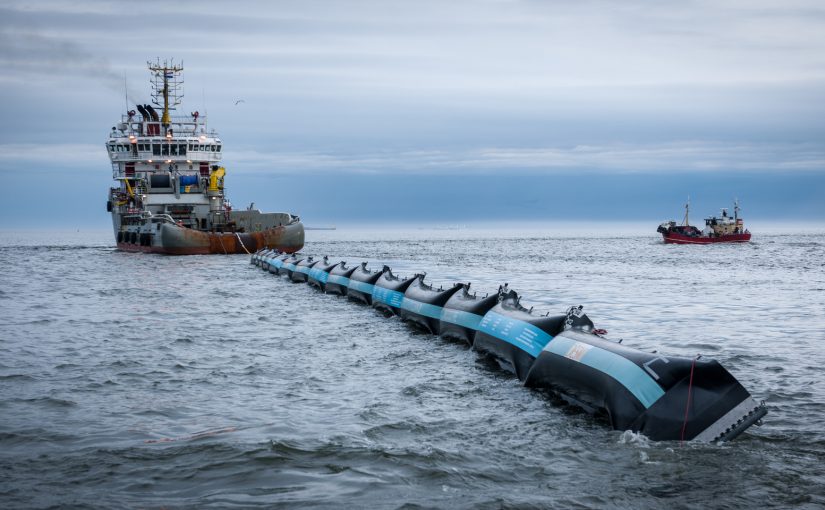
Reinigungsaktion im Pazifik
Ein sechshundert Meter langes Rohr, darunter hängt ein Vorhang – diese Konstruktion soll von San Francisco aus aufs offene Meer kommen. Dort soll sie als Plastikbarriere ihren Dienst aufnehmen. Der Erfolg des Projektes ist umstritten – und Kritiker befürchten sogar Beeinträchtigungen des Ökosystems. Beitrag lesen. Deutschlandfunk | Forschung aktuell | 7. September 2018 | 5…
-
Plastisphere Ep.1: Welcome to the Plastisphere
Subscribe to feed In this introduction to the Plastisphere podcast, Anja takes the listener on a journey back in time, from a remote plastic beach on the Big Island of Hawaii to the factory of a big chemical producer making bioplastics. She shares what she has learned about the issue of plastic pollution in the…
-
In Schleswig for Undark
Schleswig is a small town in the North of Germany. This spring, a major plastic leak there sparked a debate in Germany: Can a circular economy include shredding food waste and packaging together? For Undark, I went to Schleswig to find out what had happened:
-
Projekt “The Ocean Cleanup”: Eine Röhre gegen den Müll im Ozean
Den Pazifik vom Plastikmüll befreien: Der Niederländer Boyan Slat und sein Team vom “Ocean-Cleanup”-Projekt haben ein ehrgeiziges Ziel. Der von ihnen konstruierte Müllerfänger wurde nun erstmals zu Wasser gelassen. Doch was kann das Gerät wirklich gegen riesige Müllwirbel ausrichten? Mein Kollegengespräch mit Arndt Reuning gibt es hier online nachzulesen. Deutschlandfunk | Forschung aktuell | 04.06.2018…
-
Teilchenfänger: Ideen gegen Mikroplastik
Radio-Feature für die Sendung “Wissenschaft im Brennpunkt” Von Anja Krieger und Christine Westerhaus Deutschlandfunk | 4.6.2017 | 16:30 | 27 Minuten Online-Version lesen
-
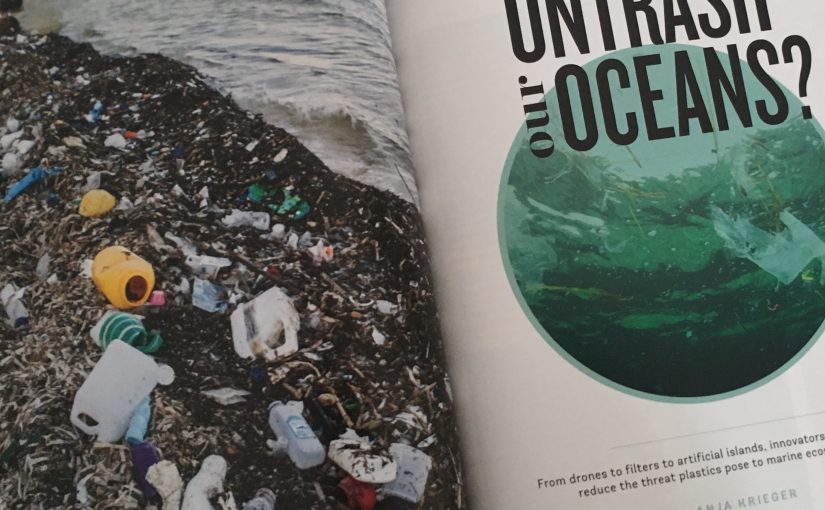
Ensia Best of Year
My long read: “What will it take to get plastics out of the oceans?” featured in the “Ensia Best of Year” print edition (online on Issuu)
-

Meereswaschmaschine in Not
Der junge Niederländer Boyan Slat hatte eine ambitionierte Idee: eine Art Meereswaschmaschine, die Müll von der Oberfläche des Nordpazifiks filtern soll. Nach vier Jahren Arbeit an der Vision wurde ein Prototyp in die Nordsee gesetzt. Doch nach zwei Monaten auf See musste die Konstruktion wieder an Land geholt werden. Beitrag lesen Deutschlandfunk | Forschung aktuell…
-
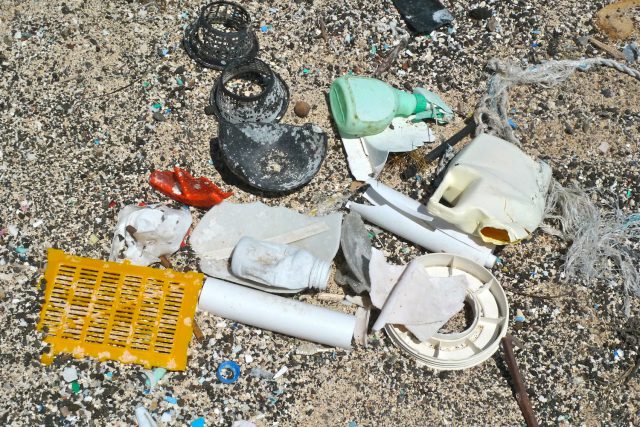
What will it take to get plastics out of the ocean?
From drones to filters to gigantic cleaning arrays, innovators are working to reduce the threat thousands of tons of trash pose to marine ecosystems. But how realistic are their plans, and how much of a difference can they really make? Read my article on Ensia An Earth Journalism Network Future Oceans Story, re-published under CC-BY…
-
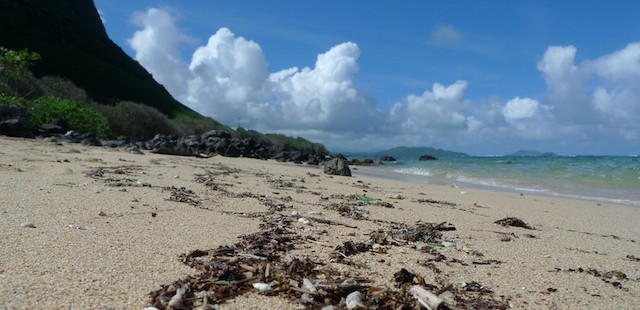
Deep-Sea Microplastics
— Report translated from German — According to a recent study, 270,000 tons of plastic waste are floating in the world’s oceans. That sounds like a lot, but the annual production of plastic is over a thousand times higher. So scientists are starting to wonder: Has the inventory of plastic in the oceans just scratched…
-

Spurensuche in der Tiefsee
Teile unseres Plastikmülls sammeln sich am Boden der Meere – das haben Forscher schon länger befürchtet. Nun sind sie in Proben aus dem Sediment der Tiefsee tatsächlich fündig geworden. Ich spreche darüber mit Richard Thompson, Mitautor der Studie.
-
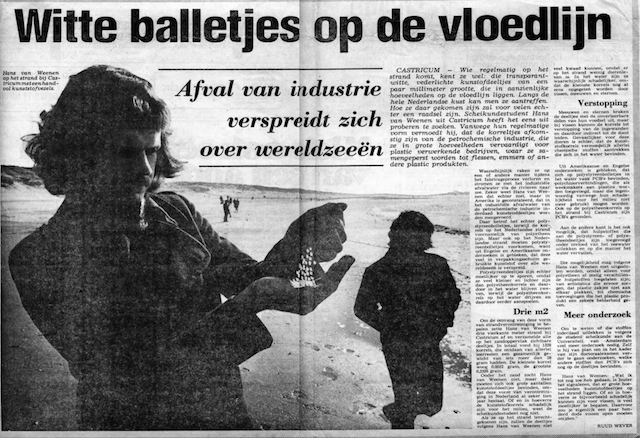
Die Tränen der Meerjungfrau
Hans van Weenen ist Anfang Zwanzig, als er am Strand seines holländischen Heimatorts Castricum kleine weiße Kügelchen aufliest: Plastik-Pellets für die Produktion, auf dem Weg in die Fabrik verloren gegangen. Es sind die Siebziger, die Lokalzeitung bringt einen langen Artikel. Doch die Zeit ist noch nicht reif. Bis die internationale Presse über Müllwirbel aus Plastik…
-
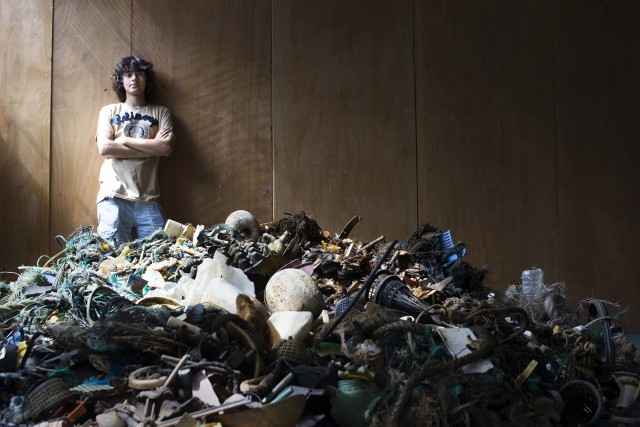
Der Müllmann der Meere?
Boyan Slat ist 18 Jahre alt, als er im Oktober 2012 auf die Bühne tritt. Schlaksig steht er in der Aula der Technischen Universität Delft, ein bisschen nervös und die langen braunen Haare tief im Gesicht. In fließendem Englisch präsentiert der junge Niederländer auf der TEDxDelft-Konferenz seine Idee: Eine Plattform, die den pazifischen Ozean vom…
-
Infografik zur Plastiktüte
Wie viele Plastiktüten verbrauchen wir in Europa pro Person? Wieso täte die Einschränkung dünner Tüten der Industrie nicht wirklich weh? Diese und weitere Zahlen zum Thema Tüte habe ich für die Infografik in der Zeit 50 zusammen gestellt.
-
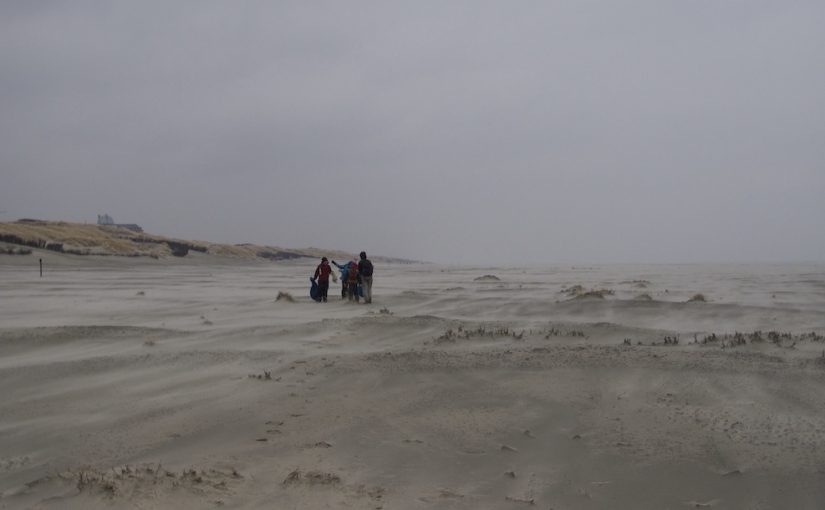
Mikroplastik in jeder Muschel
Toncollage: Stimmen aus dem Feature Auf der niedersächsischen Nordseeinsel Juist setzen sich Einwohner, Politiker und Umweltschützer gegen verschmutzte Strände ein. Vor allem Plastik wird zunehmend angetrieben. Jedes Jahr kurz vor Beginn der Saison wird der Strand aufgeräumt. Und dabei fallen den Insulanern so einige Geschichten ein – wie die von den weißen Turnschuhen, die einst…
-
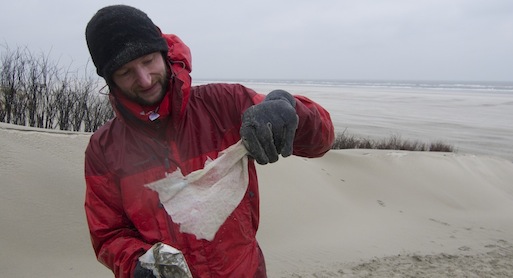
Plastik am Nordseestrand
Die Bewohner der Nordseeinsel Juist räumen seit Jahren das Plastik vom Strand. Zusammen mit Umweltschützern will der Bürgermeister die Inselumwelt vom Müllgut befreien. Nur was kann eine kleine Insel gegen das Treibgut aus dem Meer unternehmen? Vor allem, wenn er immer kleiner und kleiner und kleiner wird… Dienstag, 14. Mai, 13:07 im Länderreport auf Deutschlandradio…
-
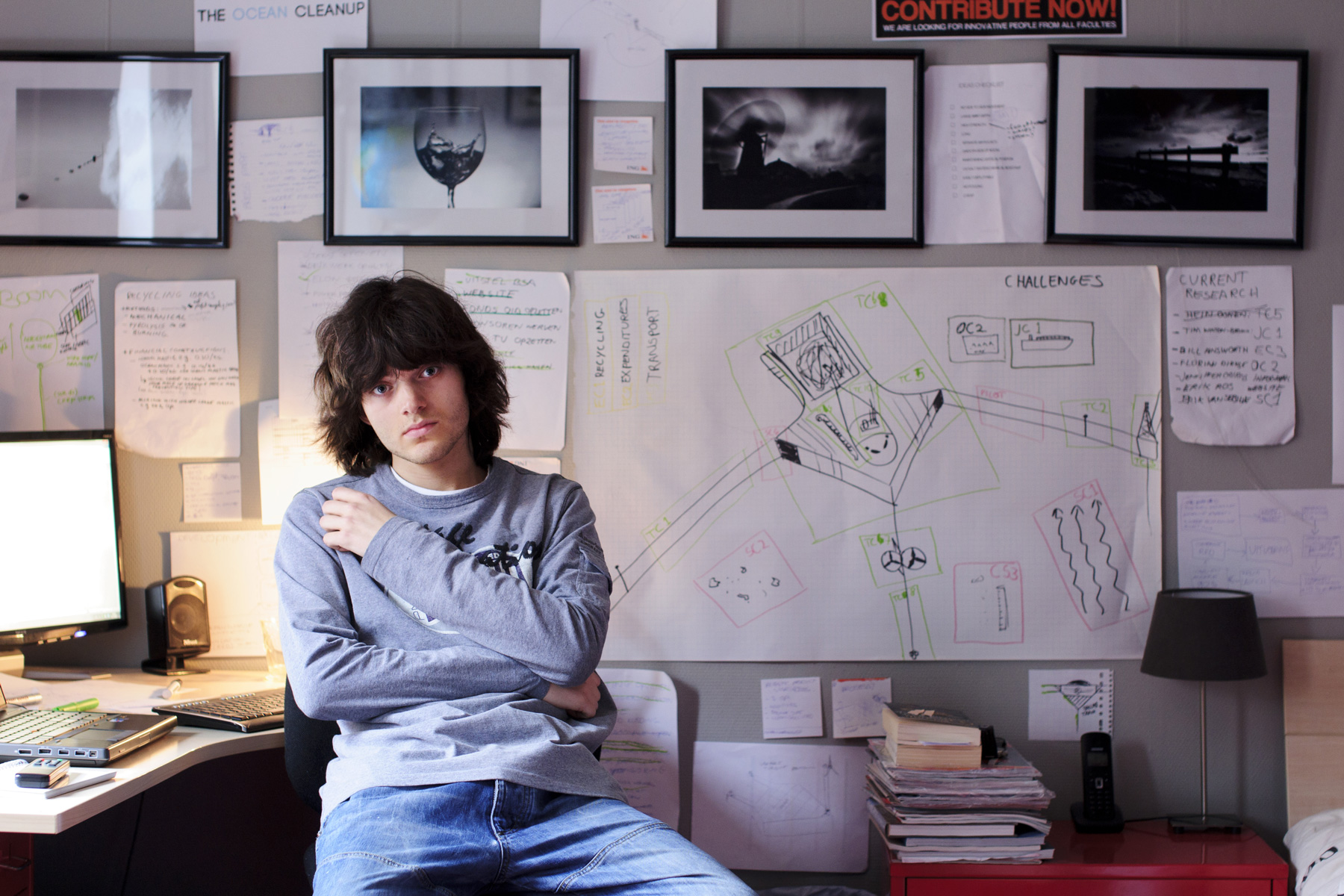
Strategien gegen den Müll im Meer
Bei einer Fachtagung in Berlin diskutieren Wissenschaftler über das Plastikproblem der Meere und mögliche Lösungsansätze. Junge Forscher haben bereits einige visionäre Ideen entwickelt. Boyan Slat zum Beispiel träumt von fest am Meeresboden verankerten Plattformen, die das vorbeiströmende Wasser des pazifischen Müllstrudels von Plastik befreien. Ein weiteres Konzept: Drohnen mit Netzen, die das Plastik aus dem…
-
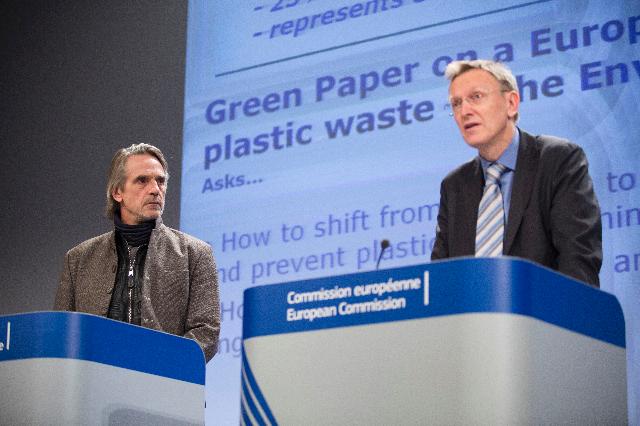
Schadstoff Kunststoff?
Abfall aus Kunststoff richtet in den Weltmeeren große Schäden an. Auf der ersten europäischen Konferenz zur Eindämmung und Vermeidung von Meeresmüll in Berlin diskutieren Experten aus Forschung, Politik, Umweltschutz und Industrie, was zu tun ist
-
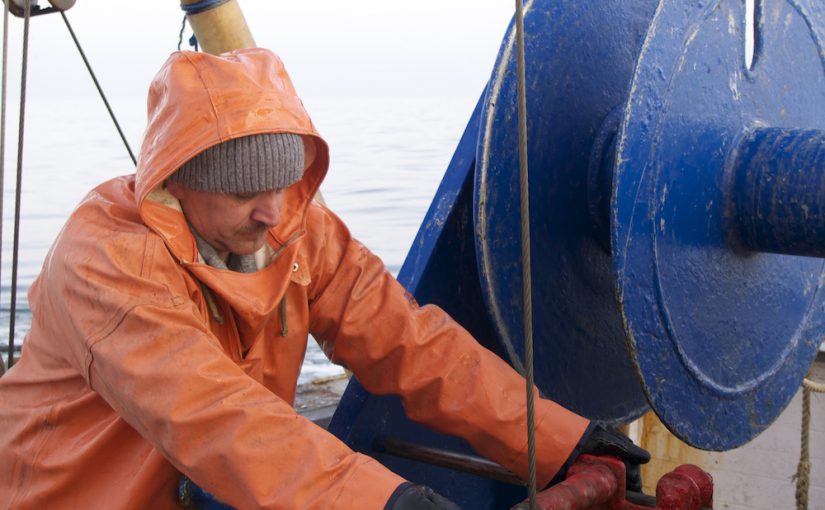
Die Entmüllung der Meere
Drohnen, Bioplastik, Recycling, Reduktion der Produktion: Ideen gegen die Vermüllung der Meere gibt es viele. Das Radio-Feature beleuchtet die Frage, welche davon sinnvoll sind.
-
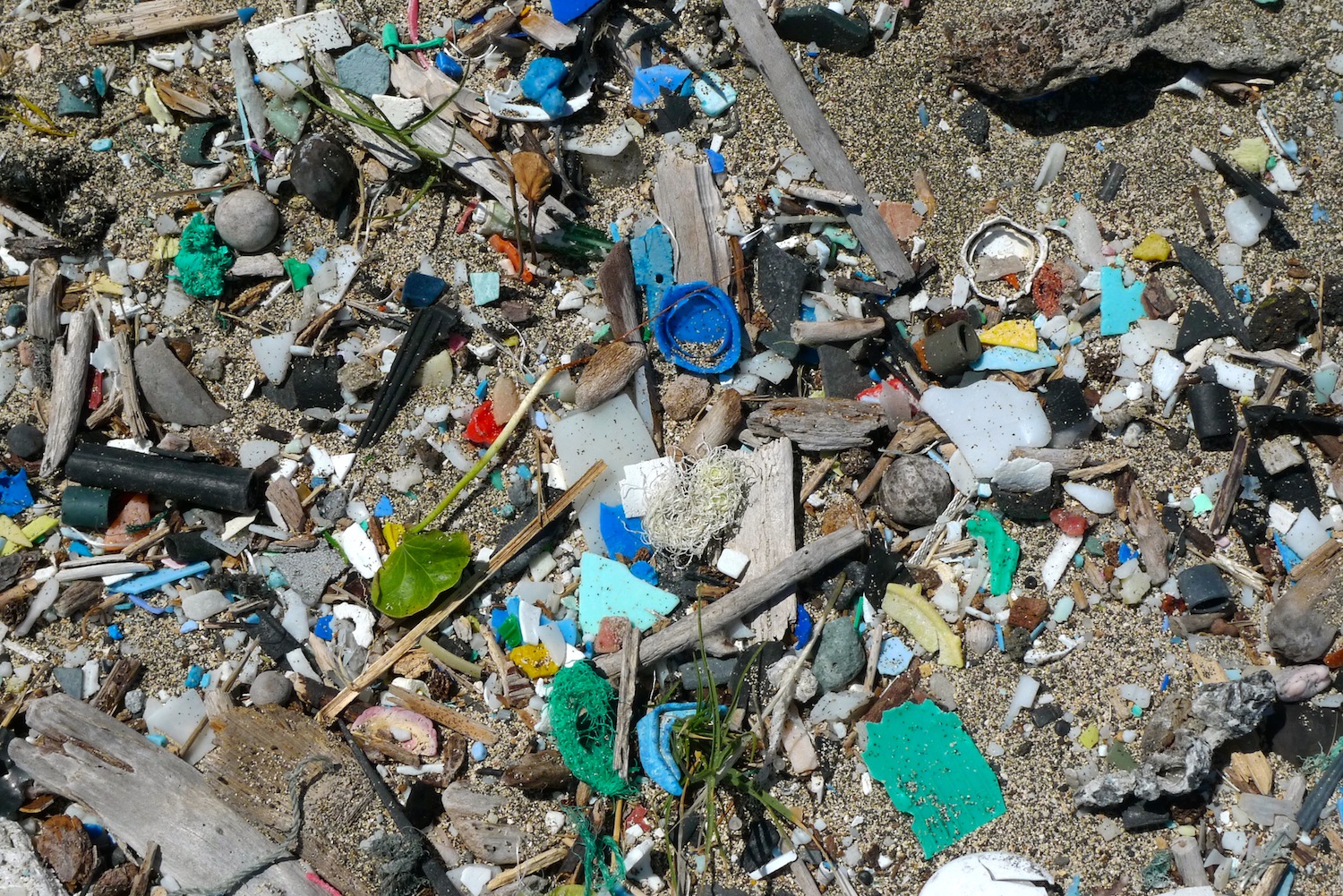
Cleaning the Oceans
— Report translated from German — “Recycled Island creates a self-sustaining habitat floating in the ocean. The urban area houses around five thousand people. Agriculture supports a self-sustaining environment, together with seaweed cultivation.… Natural resources are used to provide food, energy, transport, and comfort.… The entire island is constructed from plastic trash that floats in…
-

Manche Zahlen sind wie Plastik
Manche Zahlen sind wie Plastik: Leicht, praktisch und ewig haltbar. Zum Beispiel diese: Über 6,4 Millionen Tonnen Abfall landen jährlich in den Weltmeeren. Das ist eine Angabe aus den 70ern, die bis heute recycelt wird, wenn es um Plastikmüll im Meer geht
-
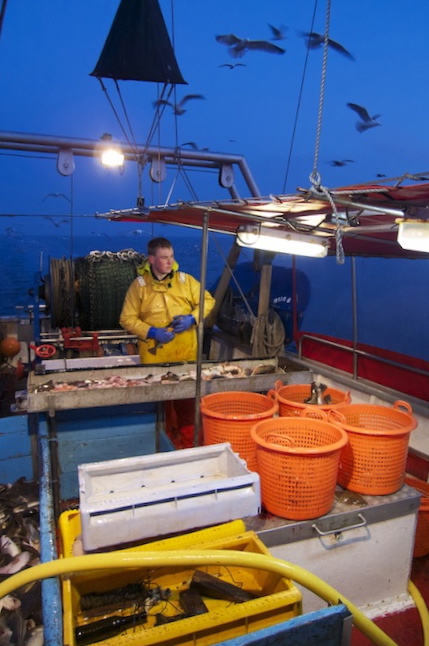
Auf’m Kudder
Um vier aus dem Bett, um fünf aus dem Hafen. 14 Stunden auf See. Rausfahren, rumliegen, quatschen, sich ausfragen. Nach Sonnenaufgang die schwere Winde anschmeißen und das Netz ins Meer lassen. Fünf Stunden warten, schlafen, quatschen, den Funk hören. Schiffe gucken durchs Fernglas. Muffins von der Schwiegermutter. Müßiggang, bis das Netz voll ist. Die Winde…
-
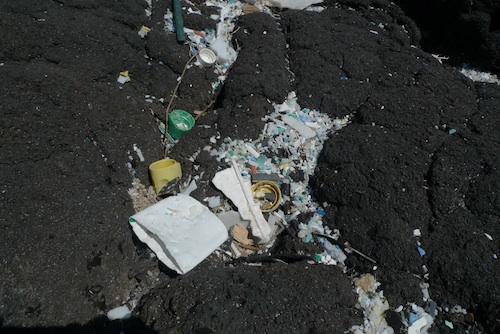
Das Meer vermüllt
Wieviel Plastik schwimmt im Meer und welchen Einfluss hat das auf marine Ökosysteme? Wie stehen die Chancen, den Kunststoff wieder aus dem Meer zu bekommen? Für die ZEIT 51/2012 habe ich einen Artikel dazu geschrieben. Online kann man ihn auf Zeit Online lesen und kommentieren.
-
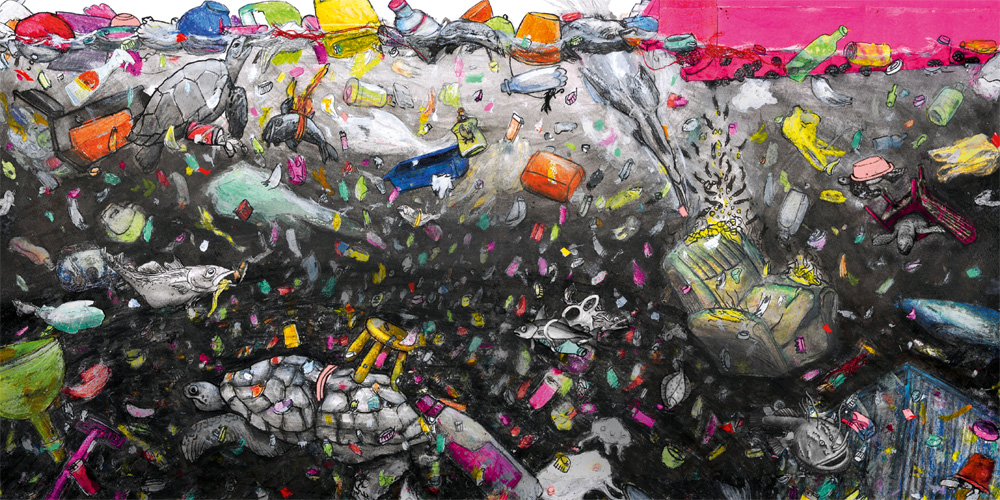
Polymeer
Das Jahr 2043. Holland versinkt unter dem gestiegenen Meeresspiegel. Zwischen Treibgut und Wellen wird auch der Utrechter Chemiker Nero van Dijk ins Meer gerissen. Auf einem pinken Möbelstück treibt er einsam übers Meer, bis er Land entdeckt. Nein, kein Land, sondern Plastik – ein schwimmender Teppich aus Müll, aus dem bald der rettende neue Kontinent…
-

Plastik im Meer
DRadio Wissen hat gestern einen Plastiktag gemacht, zu Geschichte, Chemie, Design und Umwelt. Ich habe einen Beitrag zu Plastik im Meer beigesteuert. Mehr…